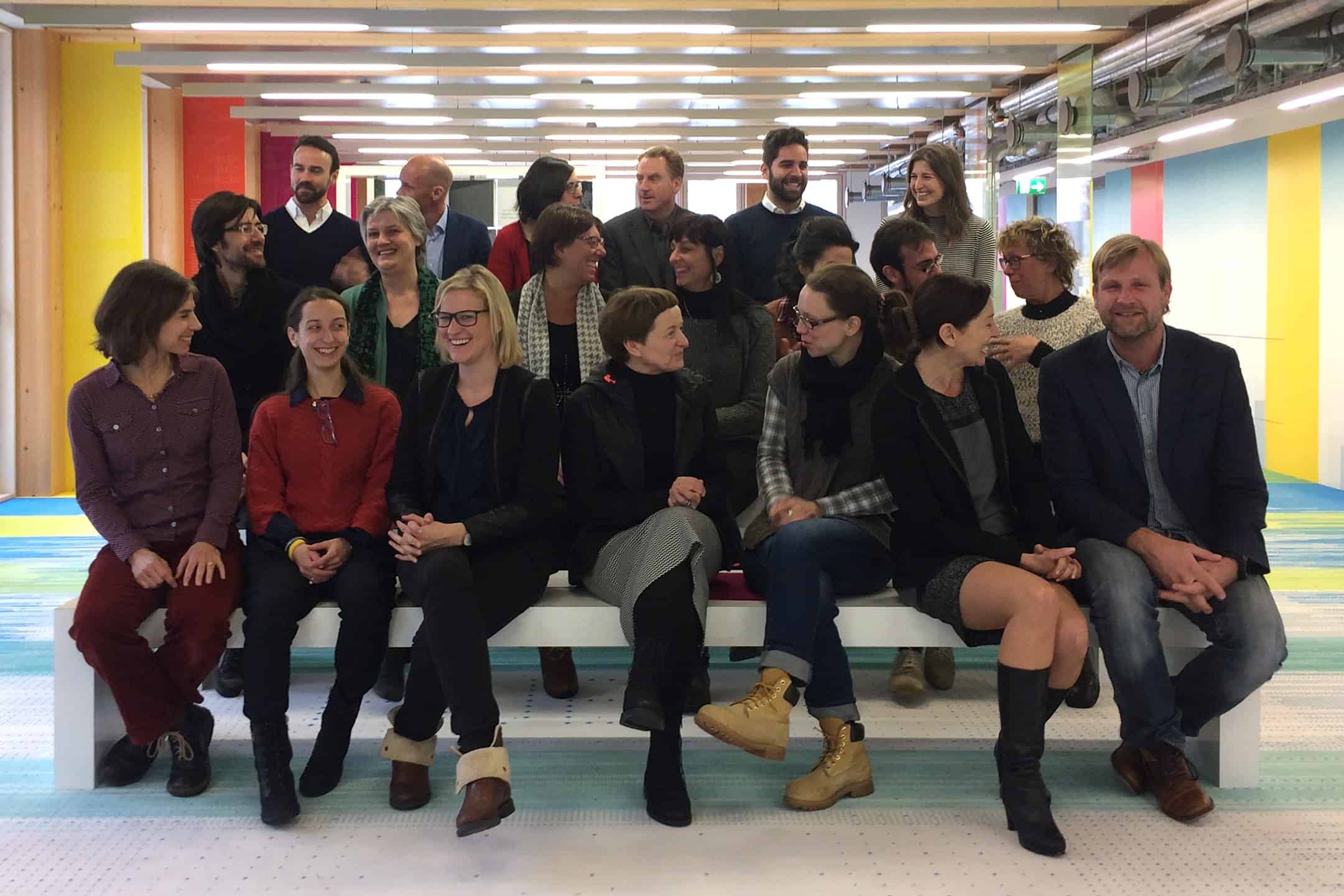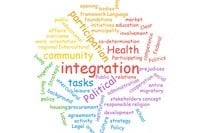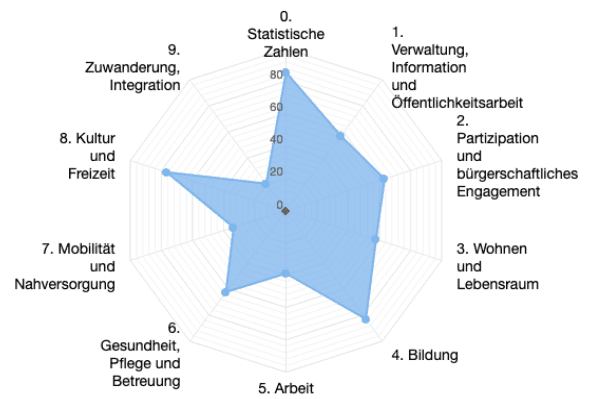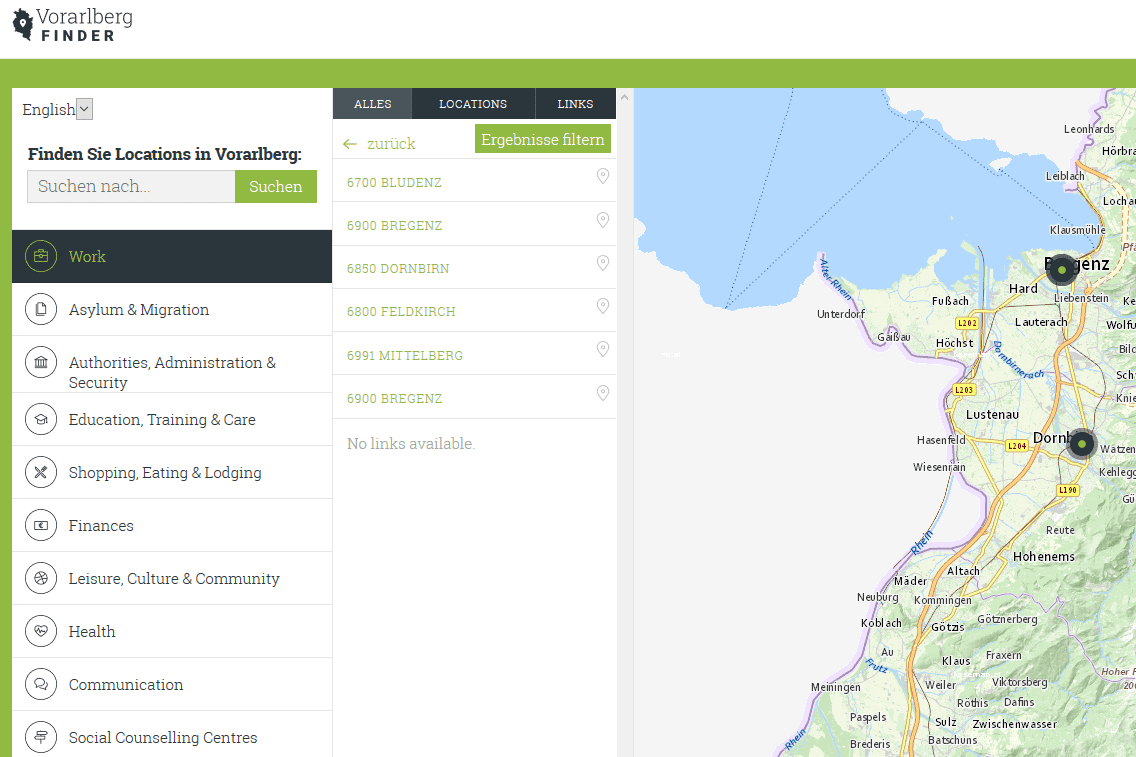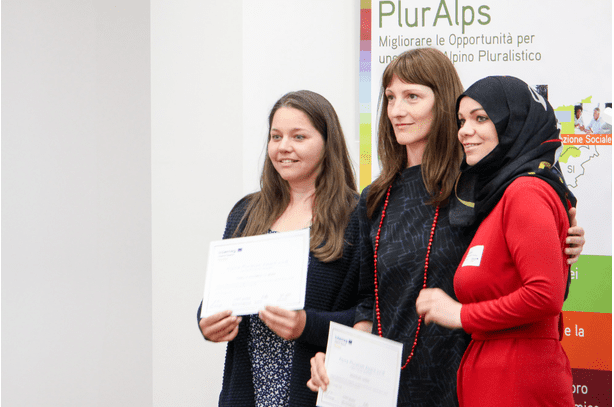
Overview
Pluralism as a strength of the Alps: this is what ten organisations in the PlurAlps project have been committed to. The pilot regions demonstrated how integration can succeed with the help of municipalities, companies and civil society. These experiences can now inspire others while giving insights into how to set up successful and sustainable integration projects. The project partners developed an instrument for social planning in municipalities that helps to improve the quality of life for the population and immigrants. The PlurAlps White Paper contains recommendations for politics and society: How can the attractiveness of peripheral areas in the Alps be increased? What strengthens social cohesion? and more.
Factsheet
- 2014 – 2020
- Innovative
- Increase capacities for the delivery of services of general interest in a changing society
-
- Group 3: To improve the adequacy of labour market, education and training in strategic sectors
- Group 5: To connect people electronically and promote accessibility to public services
- 11/2016
- 10/2019
- 2.699.979 EUR
- 2.065.498 EUR
Partners
- Lead partner
- Austria
- Vorarlberg
- Alberschwende
- Peter Steurer
- peter.steurer@regio-v.at
- Austria
- Vorarlberg
- Dornbirn
- Austria
- Steiermark
- Leoben
- Germany
- Oberbayern
- Übersee am Chiemsee
- Italy
- Provincia Autonoma di Bolzano/Bozen
- Bolzano
- Italy
- Piemonte
- Torino
- Italy
- Provincia Autonoma di Trento
- Trento
- Slovenia
- Zahodna Slovenia
- Ljubljana
- France
- Rhône-Alpes
- Lyon
- Switzerland
- ZentralSwitzerland
- Luzern
- 47.450288959.83085872426787
- 47.409102899999999.738831549556004
- 47.354516515.072223785043594
- 47.8203628139887112.479813914279312
- 46.494530211.3472734
- 45.06252077.6703767
- 46.068808411.1192604
- 46.042281814.5073676
- 45.74063514.8198992
- 47.04806218.3144194
Outcomes
-
Alpine Cooperation Potential - Practical cooperation potentials between alpine regions
StrategyThis report gives an overview and outlook on cooperation for a pluralist society in the Alpine area on an organizational level and from a thematic point of view.Building on the key findings and experiences gained in PlurAlps, this report gives an overview and outlook on cooperation for a pluralist society in the Alpine area on an organizational level and from a thematic point of view. The report describes where the Alpine area stands in terms of welcoming and social planning: Which good practices of welcoming and social planning exist already? How do governance and networks look like? What are the requirements for developing a social planning instrument? For the full version please consult the English version. The other language versions are abridged versions of the report. -
Handbook for the use of the Social Planning Instrument
ToolThe Social Planning Instrument (SPI) supports mid and long-term social planning to take the interests of both the local natives and the new residents into account.The SPI encompasses the following parts: the process within the municipality, a questionnaire in the form of a user-friendly online tool, and a handbook. The prime focus of the SPI lies on the following main questions: What is the quality of life of immigrants and non-natives? How can their quality of life be improved? Which services and provisions in the municipality foster a quick integration for all types of immigration – from internal to forced migration? The handbook is available in English, French, German, Italian and Slovenian language. -
Action Plan
ToolSeven pilots have defined an action plan with measures to improve the quality of life, from an immigrants´ perspective, based on the social planning instrument developed by the PlurAlps project.In two workshops with an extended working group ideas for improving the quality of life were collected on the basis of the results of the self-evaluation in the online tool. After that, the ideas were reformulated into measures. There was no public presentation of the action plan in any of the pilot communities. During the process instead, it turned out that the measures should first be intensively discussed in several working groups and political committees. -
New offers and services for migrants
ToolThe PlurAlps project partners launched pilot projects in the fields of social integration, labour market integration and environmental and landscape management by migrants.Local or regional implementation partnerships were formed which include all relevant stakeholders for the development of the new offers and services such as municipalities, SMEs, NGOs and other stakeholders. In total, in the six participating countries more than 80 organisations and institutions participated in implementing the pilot projects. -
Enhancing capacities for a pluralistic Alpine Space: Innovation Toolbox
ToolThe experiences from the PlurAlps pilot projects are summarized in this toolbox. The goal is to share what has been learned, make processes transparent and inspire further ideas and projects in other regions.The PlurAlps partners launched pilot projects in the fields of social integration, labour market integration and environmental and landscape conservation. Local or regional implementation partnerships were formed to involve different actors such as municipalities, SMEs, NGOs and other stakeholders. In total, more than 80 organisations and institutions in the six participating Alpine countries were involved in the implementation of the pilot projects. The experiences from the pilot projects are summarized in this toolbox. The goal is to share what has been learned, make processes transparent and inspire further ideas and projects in other regions. The PlurAlps partners developed this toolbox as a useful resource for fostering pluralism as a key for local development in the Alpine Space. -
Fostering pluralism as a key to local development in the Alpine Space
StrategyThe PlurAlps White Paper provides policy recommendations aimed at increasing the territorial attractiveness and social cohesion of the Alpine Region through innovative measures that foster pluralism and address migration.The recommendations focus on municipal and inter-municipal levels of engagement. More specifically, they present approaches for public and civil society actors working at different levels (local, regional, national and transnational, including the business sector) that encourage social, cultural and economic innovation, and support pluralism and prosperity at a local level. These actions aim to create more inclusive labour markets and societies for all - locals and migrants - in line with the principles enshrined in the European Pillar of Social Rights. The report is available in English, French, German, Italian and Slovenian language.

